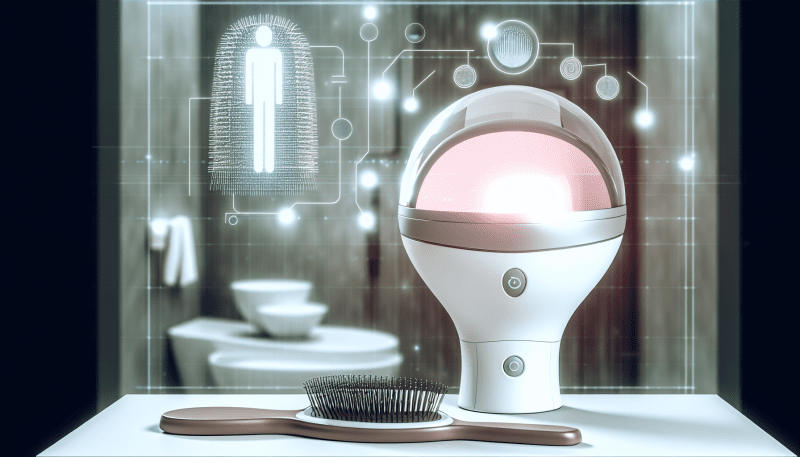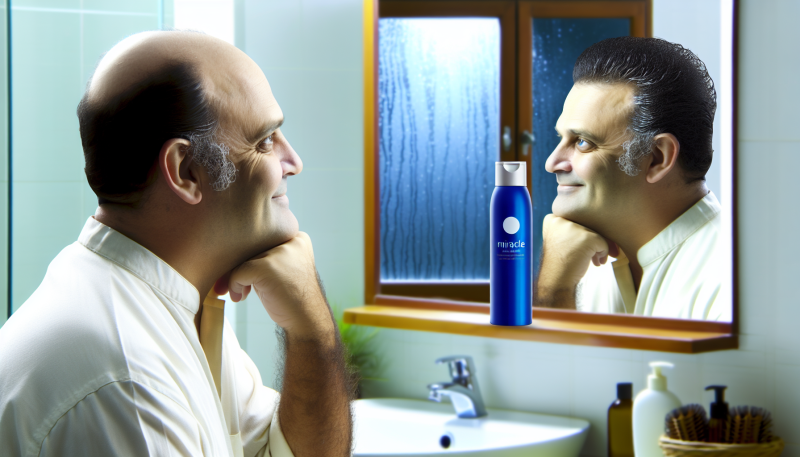When it comes to fighting hair loss, the best defense is a good offense. Adopting healthy habits can make a big difference in keeping your locks full and vibrant. Let’s dive into some effective ways to promote hair health.
Eat a Balanced Diet
Stay Hydrated
Water is a simple yet powerful ally in your hair care routine. Staying hydrated helps your body function properly and keeps your hair moisturized from the inside out. Aim for about eight glasses a day, but adjust based on your activity level and climate.
Manage Stress
Stress can take a toll on your body, including your hair. Make time for relaxation techniques like yoga, meditation, or even taking a stroll outside. Finding time to unwind can really help reduce hair loss and overall promote better health.
Choose the Right Hair Care Products
Choosing the right hair care products can make a big difference when you're dealing with hair loss. Let’s break it down into easy steps to help you find what works best for your hair.
First, look for shampoos and conditioners that are specifically designed for thinning hair. These products often contain ingredients like biotin, keratin, and natural oils that help strengthen and nourish your strands. Always check the label for sulfate-free options too, as sulfates can be harsh and strip away natural oils.
Next, consider supplements and treatments. There are topical treatments and oral supplements that target hair loss. Look for products with minoxidil or essential vitamins like Vitamin D and iron, which can promote overall scalp health.
Lastly, don’t ignore heat protection. If you style your hair often, using a heat protectant can help prevent damage and breakage, which is crucial when you're trying to keep your hair healthy. Opt for lightweight formulas that won’t weigh your hair down.
Nutrition for Strong and Healthy Hair
When it comes to keeping your hair strong and healthy, what you eat plays a big role. Think of your hair as a reflection of your overall health; if your body is happy, your hair will likely be too! So let’s dive into some key nutrients that can help you combat hair loss.
First up is protein. Hair is mostly made of a protein called keratin, so making sure you have enough protein in your diet is crucial. Foods like chicken, fish, eggs, and beans are fantastic sources. If you’re vegetarian or vegan, don’t worry! You can load up on lentils, quinoa, and nuts to make sure you’re getting your fill.
Next, let’s talk about vitamins and minerals. Vitamins A, C, D, and E are all super important. They contribute to healthy hair growth and can be found in fruits and veggies like carrots, spinach, and avocados. Iron is another big player; it helps carry oxygen to your hair follicles. You can up your iron intake with red meat, leafy greens, and chickpeas.
Don’t forget about omega-3 fatty acids! These good fats keep your scalp healthy and nourished. You can find them in fatty fish like salmon or in flaxseeds and walnuts. And don’t overlook hydration—drinking plenty of water is vital for overall health, including hair health.
Incorporating these nutrients into your daily meals doesn’t have to be complicated. Simple, healthy meals that pack a punch can make a world of difference for your hair. Just remember, consistency is key, and soon you’ll be on your way to flaunting a luscious mane that looks and feels great!
Stress Management for Better Hair Health
Taking care of your hair isn’t just about the products you use; it’s also about how you manage your stress levels. Believe it or not, stress can play a huge role in hair health. When you're feeling overwhelmed, your body can go into survival mode, which sometimes means prioritizing essential functions over hair growth. So, let’s dive into some stress management tips to help your hair look its best!
One great way to reduce stress is through regular exercise. It doesn’t have to be a marathon—simple activities like walking, yoga, or even dancing in your living room can do wonders. Exercise helps release endorphins, the body's natural mood lifters. Plus, increased blood flow can boost the nutrients your hair follicles receive.
Another effective method is practicing mindfulness and relaxation techniques. Try out meditation or deep-breathing exercises. Just a few minutes each day can help clear your mind and reduce anxiety. You could also explore hobbies you love, like painting or gardening, to take your mind off stressors.
Don’t overlook the importance of a good sleep routine. Lack of sleep can exacerbate stress and negatively affect hair health. Aim for 7-9 hours of quality sleep each night. Create a calming bedtime ritual to help you wind down, like reading or sipping herbal tea.
And remember, talking things out can really help too. Connecting with friends or a support group can lighten your emotional load. Sometimes, simply sharing your worries can help you feel a lot less stressed and more in control, which in turn can benefit your hair health.



